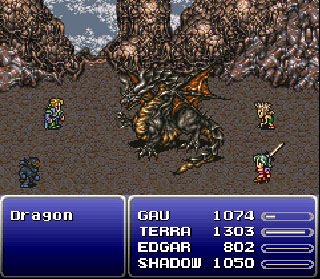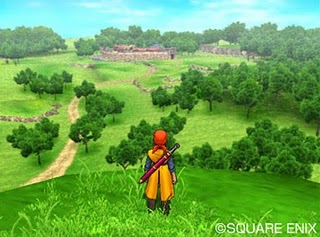This post has not been edited by the GamesBeat staff. Opinions by GamesBeat community writers do not necessarily reflect those of the staff.
 Editor's note: Jon's ideas to repair issues he sees with the Japanese role-playing game has sparked a great deal of debate in the comments. Do you agree with Jon that the genre has issues that Japanese developers need to address? Are there problems that he left out of this post? Join the discussion! -Jason
Editor's note: Jon's ideas to repair issues he sees with the Japanese role-playing game has sparked a great deal of debate in the comments. Do you agree with Jon that the genre has issues that Japanese developers need to address? Are there problems that he left out of this post? Join the discussion! -Jason
It’s no secret that the Japanese role-playing game, once the provider of some of the deepest gaming experiences around, is going through a period of stagnation. Like the rest of the Japanese industry — aside perhaps from Nintendo — the JRPG is facing a very quiet and yet very real crisis, trying to broaden its appeal with Western gamers while retaining what made the genre great.
The genre still has games that continue to do well critically as well as commercially. Dragon Quest 9: Sentinels of the Starry Skies recently released to a fanfare of praise, even from gamers who’ll admit to never having played a Dragon Quest game before. Persona 4 also found great success recently, with its unusual setting and art style that really helped to set it apart from the crowd. Final Fantasy, once the king of the hill, fell into something of a critical rut with its 13th game of the main franchise. It may have sold well, but critics such as Giant Bomb’s Brad Shoemaker and the staff of Edge magazine panned the game for its insufferable hand-holding and lack of innovation.
When considering how to reinvent a genre, it’s always important to keep what made it great to start off with. Storylines and epic battles have always appealed to the hardcore JRPG fans, and as such it would be wise to keep these features intact when trying to broaden the appeal of the genre. Likewise the emphasis on loot collection and equipping characters with the best possible gear is something that’s made those 100-plus hour saves in Final Fantasy 10 something to be proud, rather than ashamed, of.
Finally — and I realize this may be a controversial choice here — turn-based battles should remain a part of the JRPG formula. Sure, it may be annoying to have all of your battles take place in a completely separate arena in the main game, and many may find it irritating to not have full control of the movement of your characters. But by taking movement control away from the player, a game’s animators have the freedom to create elaborate attacks and moves for your party members. The presence of menus is also a very useful tool to have in battle, without it you’re having to rely on only as many actions as your controller has buttons to perform.
With these crucial features ring-fenced, let’s move on to what’s holding the Japanese Role Playing Game back – the problem of assumed knowledge.
 These games expect the play to work out too much on their own, with often little to no explanation. Character stats are a prime example of this; I couldn’t begin to explain to you what my character’s “Endurance” or “Luck” ratings do for them in Persona 3, and I’ve been playing that game for 15 hours now. I just about understand the stats of attack and defense, but beyond that it's just guesswork, and guesswork doesn't make for a fun game.
These games expect the play to work out too much on their own, with often little to no explanation. Character stats are a prime example of this; I couldn’t begin to explain to you what my character’s “Endurance” or “Luck” ratings do for them in Persona 3, and I’ve been playing that game for 15 hours now. I just about understand the stats of attack and defense, but beyond that it's just guesswork, and guesswork doesn't make for a fun game.
A common method of trying to get all this information across is to include a character or shopkeeper with an encyclopedic knowledge of the game’s battle system. Theoretically, the player then has access to all the information they could possibly want on character stats, weapon types, status ailments, and elemental attacks, but in practice these walls of text are uninviting, boring, and don’t deliver the information in a way you’re likely to remember for long.
Other genres have managed to work out how to explain their often complex mechanics to the player. Rather than bombarding the player with information from the outset, most games will wait until a relevant moment before explaining in as few words as possible what’s just happened. A JRPG could likewise wait until the player gets poisoned for the first time before having a character describe what poisoned entails. Descriptions like this could ease new players into a complex system without the need for dumbing it down to appeal to the lowest common denominator. As always, players should have the ability to turn off these tutorial snippets, to avoid alienating the RPG literate.
 As previously mentioned, a large part of the genre's appeal comes from their huge storylines, often involving dozens of characters, and a plot that’s global in scope. Whilst these kinds of plots were once fresh and exciting, it’s hard to feel they’ve really moved on much in recent years. Yarns spun around the search for magical crystals or the quest to stop someone’s attempt to take over the world simply don’t cut it in today’s landscape of conspiracy and intrigue.
As previously mentioned, a large part of the genre's appeal comes from their huge storylines, often involving dozens of characters, and a plot that’s global in scope. Whilst these kinds of plots were once fresh and exciting, it’s hard to feel they’ve really moved on much in recent years. Yarns spun around the search for magical crystals or the quest to stop someone’s attempt to take over the world simply don’t cut it in today’s landscape of conspiracy and intrigue.
The same could also be said for the genre’s over reliance on cutscenes as a means to deliver its story. Final Fantasy 12’s story managed to break new ground in the genre by telling the tale of a small nation trapped between warring superpowers, but its delivery method was frankly ancient, compartmentalizing the game’s story and gameplay sequences into completely separate boxes. If we were to oversimplify the issue, we could claim the world needs to be struck by the BioShock of JRPGs.
Finally, there’s the length issue to address. “Vanilla” role-playing games have, are, and probably always will be long. This is especially true in Japanese role-playing games, which manage to be long in an entirely different way to Western games. While a player’s 50 hours spent with Fallout 3 likely saw them spending huge amounts of time exploring the game’s world, the same cannot be said for your average Final Fantasy save, made up of hours “grinding” (running around the same areas fighting monsters purely to increase your own characters’ skill levels) as well as the inevitable slow start inherent with nearly every game in the genre.
 Game length is not in itself a bad thing. Despite rumblings to the contrary, many gamers are still very happy to play a game for upward of 20 hours. What is a bad thing is poor pacing and time that is for all intents and purposes “wasted.” Sitting through the opening hours of a game without getting to play anything is neither fun nor serves any greater purpose. Likewise, having to fight the same monsters over and over again can very easily sour the best of games. Include these things if you must, but please have the courtesy to shield us “casual” RPG fans from them.
Game length is not in itself a bad thing. Despite rumblings to the contrary, many gamers are still very happy to play a game for upward of 20 hours. What is a bad thing is poor pacing and time that is for all intents and purposes “wasted.” Sitting through the opening hours of a game without getting to play anything is neither fun nor serves any greater purpose. Likewise, having to fight the same monsters over and over again can very easily sour the best of games. Include these things if you must, but please have the courtesy to shield us “casual” RPG fans from them.
The Japanese RPG is a fantastic genre that more people should play. It has the potential to deliver the greatest storylines and battle systems in gaming, which is why it’s such a shame seeing this squandered on what are in many cases the same sort of games we were playing back in the '90s. A revolution is due, because the JRPG won’t be going quietly.
